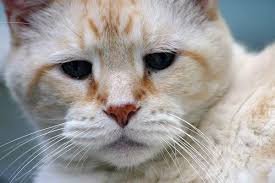How to Help Your Pet in Their Senior Years
Just like humans, senior pets need extra care as they grow old. As an owner, it is important to be mindful of all the ways you can help to maximize your pet’s quality of life in their golden years.
It’s not always easy to see our beloved pets enter their senior years, but understanding their needs can help keep them happy and healthy. Better care means dogs and cats are living longer now than they ever have before, and as pets get older, they need extra attention and care. It is important to remember age is not a disease. Although senior pets might develop age related problems, you can still help your pet live a happy and healthy life.
When does a pet become a senior?
The short answer is, it varies. Cats are generally considered to be a senior after 10 years old. Dog’s do not have a universal age as the age your pup becomes a senior varies based on size and breed. Large breed dogs tend to have a shorter lifespan than smaller breeds. Experts suggest that dogs become seniors when they are in the last 25 percent of the estimated lifespan for their breed. According to the American Kennel Club or AKC, this translates in to the following ages:
Small or Toy Breeds (less than 20 pounds): 10 - 15 years
Medium Breeds (20 - 50 pounds): 10 - 13 years
Large Breeds (50 - 90 pounds): 10 - 12 years
Giant Breeds (more than 90 pounds): 8 - 10 years
No matter how well cared for, senior pets are vulnerable to age related issues. This means they may require a bit more attention than younger pets, including more frequent vet visits, changes to their diet and even their home.
Here are some basic considerations when caring for senior pets:
Increased Veterinary Care: Senior pets may need to see the vet a minimum two times per year so signs of illness or other problems can be detected and treated as early as possible before they become larger problems. Senior pet exams are similar to exams they have when they are younger, but more in depth. Exams may include dental care, bloodwork and checks for age related diseases. Your veterinarian is great to discuss changing patterns your pet may be experiencing that may require attention.
In between vet visits, it is important to check your pet regularly at home. Make sure to check regularly for lumps, bumps or other changes and get them checked out as soon as possible.
Diet and Nutrition: Senior pets often need easily digested foods as well as foods that provide energy levels and ingredients for seniors. These foods may also contain anti-aging ingredients. Senior specific foods have the nutritional needs our aging pets require. Typically you should follow your breed's guidelines of when they hit their senior years and make the switch to senior foods.
Along with the food our pets eat, considering adding supplements to your furry friend's diet can help them stay healthy as they age. Glucosamine supplements are fantastic for your pet's joints and cartilage. If you have a large breed, these supplements may be good to begin before your pet reaches their golden years. Omega 3 fatty acids can help with inflammation as well as cognition. Antioxidants may also be able to help with healthy cognition and memory. It is important to note that not all supplements are created equal and you may need to research what would be best for your pet or consult your veterinarian for recommendations.
Weight Control: Weight gain in senior dogs increases the risk of health problems, whereas weight loss is a bigger concern in senior cats. Excess weight can have major effects on senior pets. Obesity is linked to risk of arthritis, breathing issues, diabetes, heart disease, high blood pressure, skin problems along with many others. An overweight pet may not show early signs of disease which is why regular vet appointments are necessary. On the other hand, rapid or sudden weight loss in a senior pet often means there is something wrong, especially in cats. Hyperthyroidism, cancer, diabetes or kidney disease are some of the common causes. Consult your vet to determine the correct serving size of food for your pet, and if your pet is showing signs of weight gain, consider increasing their exercise to assist them in keeping their weight down.
Maintaining Mobility: Pets can become less active with age. Keeping senior pets active through age appropriate exercise helps them stay healthy and mobile. Adjusting your senior pet's activity to fit their age is a great way to keep them healthy and still get their mental stimulation in. Swapping jogs for walks or hikes, splitting up long walks into shorter ones can be great ways to modify the activities you and your pet enjoy doing together. Consider low impact exercises such as swimming to take the pressure off their joints. No matter what changes to the activities you do with your pet, keeping their routine as they enter their golden years can help them to thrive. As your senior pet's cognition begins to decline it is best to keep the predictability to their day to day life. It is comforting to our pets to keep routines and if changes are needed make those slowly. If your pet is mobility challenged, consider a stroller or other mobility aid for your pet. Using a stroller so your pet can still enjoy being outside on a walk with you is a great time to bond, but also your pet will enjoy the weather and still be able to enjoy the smells that being outdoors brings them.
Mental Health: Senior pets can show signs of senility or cognitive dysfunction. Continuing to have mental stimulating things for your pet to interact with can help keep them mentally active. Food puzzle toys can be a great way to add mental stimulation for your pet along with keeping their activity low impact on their joints. Your dog or cat needs to work to get the tasty treats out of the puzzle or ball by nudging it, spinning wheels or sliding compartments. Play sensory games such as hide and seek with you or with your pet's favorite treat. Continue with training and obedience. Incorporating at least 10 minutes of structured trick and obedience training can help keep them active as well as it being a mentally stimulating activity. Encourage interaction with other dogs and people. If your pet loves the company of people and dogs, do not eliminate those fun activities from their routines.
Environment: Senior pets may need changes in their lifestyle, such as new sleeping areas to avoid stairs, more time indoors, etc. There are many modifications you can make to your home to help keep your senior pet comfortable. Senior pets, especially those with arthritis may begin to find it difficult to use the stairs, or jump on and off furniture. You may need to move their sleeping area to one that avoids steps or installing ramps to assist them with getting on and off couches or beds. Covering slippery areas such as hardwood floors as your pet's mobility decreases, they may find it difficult to hold their balance as slippery floors can be hard to walk on. Covering these spaces with rugs or mats helps provide more grip for your pet. Even something as simple as raising their food and water bowls can help. Raising them up so your pet won’t have to bend down as much to eat can be comforting to your pet.
Grooming: As your pet's mobility decreases, older dogs may not be able to reach all areas of their body as they used to. Set aside regular time to brush your pets and get any tangles and loose fur out before it becomes matted. Your pet may also need baths more frequently. Grooming can be a great time to conduct a once over on your pet to check for lumps and bumps.
It is normal for pets to lose some of their sight and hearing as they age. Senior pets might develop cataracts affecting their vision and they may not respond as well to verbal commands. Pets with poor hearing and sight can still get around well as long as they are familiar with their surroundings. If your pet's eyesight is failing, avoid rearranging furniture or adding furniture to your home that may become obstacles. Since your pet's other senses are strong, your dog can thrive with limited vision. Teaching your pet hand signals at a young age may make it easier for you to communicate with them as their hearing worsens with age. When beginning training, consider adding hand gestures that correspond to the verbal commands you are giving. Please note, even if you teach your pet hand signals, pets with hearing loss can become startled much easier.
Your pet's dental health needs to be taken into consideration at all stages of their life, but especially as they enter their senior years. Tooth disease is incredibly common in senior pets and can cause inflammation, gum infections, bone loss, and there is a risk of plaque and bacteria entering your pet's bloodstream and affecting their organs. Consider brushing your pet's teeth as part of your daily routine and have your veterinarian check their teeth at their exams. Your pet's teeth will also weaken as they age, so you should avoid harder chews, bones and antlers.
Should new pets be brought into a home with a senior pet?
It may be tempting to bring a new pet - especially a puppy or kitten - into your home as your pet gets older. It is always a good idea to introduce a new pet when your current pet still has their vision, hearing and mobility so they can hear and see the new pet coming and they have the ability to move away. Senior pets need to know they have a quiet, secure place to rest undisturbed.
Although the changes your pet faces during their senior years may seem overwhelming, small changes in their food, exercise, environment and care can make a huge difference in their quality of life. Our pets are truly members of our families, offering us love and companionship and we should be offering that back to our pets.
If you have a senior pet who may need to keep a tight schedule, consider hiring a professional pet sitter to visit your pet while you are away. If you are in the Naperville, Elmhurst, Villa Park or Lombard, IL communites, reach out to The Pet Lady here or give us a call 847.802.9534



